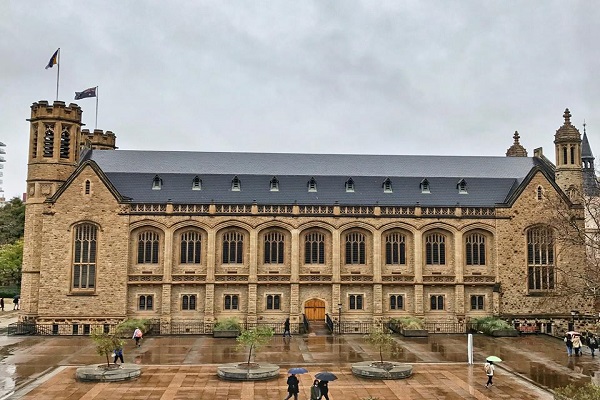University Of Adelaide’s Medical Students To Graduate With More Realistic Hospital Experience
Medical students at the University of Adelaide will graduate with a better knowledge of how to use the electronic patient record system that’s in place in hospitals around South Australia.
The University of Adelaide is now using the Sunrise Electronic Medical Record (EMR) system during practical exams for fifth year students in the Adelaide medical program.
“We’re excited to be leading the way in the implementation of new technologies. We have found that electronic medical record systems are very seldom used in education and are thrilled to be exploring this to improve the experience of our students,” said the University of Adelaide’s Associate Professor Adam Montagu, Director of Adelaide Health Simulation.
The exam is designed by clinicians and involves mock patient scenarios where students may be required to access clinical information from a patient’s medical record as part of their assessment.
In the past, students used paper-based clinical records, however since these no longer reflect contemporary practice, the decision was made to use the Sunrise EMR system instead.
“It is crucial for our students to train and be assessed in a manner that is consistent with clinical practice in the hospital setting,” said the University of Adelaide’s Dr Sean Jolly, Senior Lecturer at the Adelaide Health Simulation.
“Our increasing use of Sunrise EMR in our examinations and teaching activities to replace paper-based charts is an important step in the clinical readiness of our students,” said Dr Jolly.
“We have found that electronic medical record systems are very seldom used in education and are thrilled to be exploring this to improve the experience of our students.”
Associate Professor Adam Montagu, Director of Adelaide Health Simulation.
This is the first time Sunrise EMR has been used in assessments at the University of Adelaide.
The fully digital solution is already used in all South Australian major public metropolitan hospitals as the primary medical record system. It replaced paper-based clinical admission and progress notes, medication charting, observation charting, pathology, and imaging.
While the Sunrise EMR system used by students at the University of Adelaide is the same platform and software used in the live environment in South Australia’s hospitals, there is no risk to patient confidentiality as the data in the exam is fictitious and has been built around students’ learning and assessment outcomes.
“The feedback from the clinicians involved in the examination process was that the system provided a realistic setting for what actually happens in our hospitals. Students can access a real-time medical record, in the electronic format, exactly as they would while caring for a patient in an SA hospital,” said Associate Professor Montagu.
Access to the system has been made possible through a partnership with the Central Adelaide Local Health Network, which runs the Royal Adelaide and Queen Elizabeth Hospitals.
Adelaide Health Simulation plans to increase its use of the Sunrise EMR system across other areas of medical and nursing teaching, further increasing realism and aligning simulated experiences to genuine and technically accurate clinical encounters.

